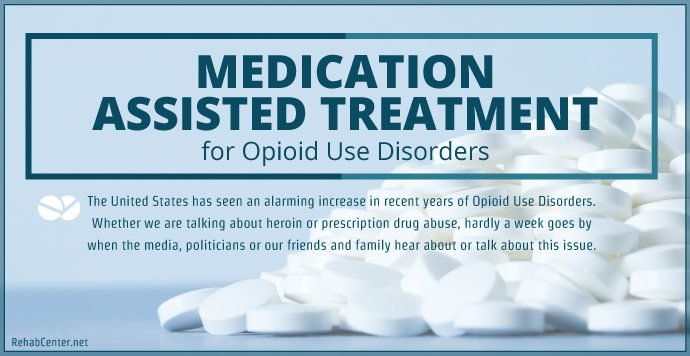A growing body of scientific evidence points to a far more reasonable and effective combined public health/public security technique to dealing with the addicted offender. Simply summarized, the data reveal that if addicted culprits are provided with well-structured drug treatment while under criminal justice control, their recidivism rates can be lowered by 50 to 60 percent for subsequent substance abuse and by more than 40 percent for more criminal habits.
In reality, studies suggest that increased pressure to stay in treatmentwhether from the legal system or from family members or employersactually increases the quantity of time clients remain in treatment and improves their treatment outcomes. Findings such as these are the underpinning of a very crucial trend in drug control strategies now being carried out in the United States and numerous foreign nations.

Diversion to drug treatment programs as an alternative to incarceration is gaining appeal across the United States. The extensively praised growth in drug treatment courts over the previous 5 yearsto more than 400is another successful example of the mixing of public health and public security techniques. These drug courts use a mix of criminal justice sanctions and substance abuse monitoring and treatment tools to handle addicted wrongdoers.
Addiction is both a public health and check here a public safety concern, not one or the other. We need to deal with both the supply and the need problems with equivalent vigor. Substance abuse and addiction are about both biology and behavior. One can have a disease and not be an unlucky victim of it.

I, for one, will be in some methods sorry to see the War on Drugs metaphor disappear, but go away it must. At some level, the notion of waging war is as appropriate for the illness of addiction as it is for our War on Cancer, which merely suggests bringing all forces to bear upon the issue in a focused and stimulated way.
Our How To Stop Drug Addiction On Your Own PDFs
Additionally, worrying about whether we are winning or losing this war has actually deteriorated to using simplified and improper measures such as counting drug user. In the end, it has actually just sustained discord. The War on Drugs metaphor has actually done absolutely nothing to advance the real conceptual obstacles that require to be overcome (what does god say about drug addiction).
We do not depend on basic metaphors or strategies to handle our other major national problems such as education, health care, or nationwide security. We are, after all, trying to fix genuinely monumental, multidimensional problems on a national or perhaps worldwide scale. To cheapen them to the level of slogans does our public an injustice and dooms us to failure.
In truth, a public health technique to stemming an epidemic or spread of an illness always focuses comprehensively on the representative, the vector, and the host. In the case of drugs of abuse, the agent is the drug, the host is the abuser or addict, and the vector for transferring the illness is plainly the drug providers and dealerships that keep the representative flowing so readily.
But just as we need to handle the flies and mosquitoes that spread infectious diseases, we need to straight address all the vectors in the drug-supply system. In order to be really effective, the combined public health/public safety approaches advocated here should be implemented at all levels of societylocal, state, and nationwide.
Each neighborhood must resolve its own locally appropriate antidrug implementation strategies, and those methods should be just as thorough and science-based as those instituted at the state or national level. The message from the now very broad and deep selection of clinical evidence is definitely clear. If we as a society ever wish to make any genuine progress in handling our drug issues, we are going to have to rise above ethical outrage that addicts have "done it to themselves" and develop strategies that are as sophisticated and as complex as the issue itself.
Little Known Questions About Who Drug Addiction Definition.
However, no matter how one may feel about addicts and their behavioral histories, an extensive body of clinical proof reveals that approaching addiction as a treatable health problem is incredibly cost-effective, both economically and in regards to wider societal impacts such as family violence, criminal activity, and other forms of social upheaval.
The opioid abuse epidemic is a full-fledged item in the 2016 campaign, and with it concerns about how to combat the issue and deal with individuals who are addicted. At an argument in December Bernie Sanders described dependency as a "disease, not a criminal activity." And Hillary Clinton has set out a plan on her website on how to combat the epidemic.
Psychologists such as Gene Heyman in his 2012 book, " Addiction a Condition of Option," Marc Lewis in his 2015 book, " Dependency is Not a Disease" and a lineup of international academics in a letter to Nature are questioning the value of the classification. So, just what is addiction? What function, if any, does option play? And if addiction includes option, how can we call it a "brain disease," with its implications of involuntariness? As a clinician who treats people with drug problems, I was stimulated to ask these questions when NIDA dubbed addiction a "brain disease." It struck me as too narrow a point of view from which to understand the intricacy of dependency.
Is dependency just a brain issue? In the mid-1990s, the National Institute on Substance Abuse (NIDA) presented the idea that dependency is a "brain illness." NIDA explains that dependency is a "brain illness" state due to the fact that it is connected to modifications in brain structure and function. Real enough, duplicated use of drugs such as heroin, drug, alcohol and nicotine do alter the brain with respect to the circuitry associated with memory, anticipation and enjoyment.
Internally, synaptic connections reinforce to form the association. However I would argue that the crucial question is not whether brain changes occur they do but whether these modifications block the factors that sustain self-discipline for people. Is addiction truly beyond the control of an addict in the very same method that the symptoms of Alzheimer's illness or multiple sclerosis are beyond the control of the afflicted? It is not.
The 15-Second Trick For Why Is Drug Addiction A Brain Disease
Envision paying off an Alzheimer's client to keep her dementia from intensifying, or threatening to impose a charge on her if it did. The point is that addicts do respond to effects and benefits regularly. So while brain modifications do occur, explaining addiction as a brain disease is limited and misleading, as I will describe.
When these individuals are reported to their oversight boards, they are monitored carefully for several years. They are suspended for a duration of time and return to work on probation and under strict guidance. If they https://yellow.place/en/transformations-treatment-center-delray-beach-usa don't abide by set guidelines, they have a lot to lose (jobs, earnings, status).
And here are a few other examples to think about. In so-called contingency management experiments, subjects addicted to drug or heroin are rewarded with vouchers redeemable for money, family goods or clothes. Those randomized to the coupon arm regularly delight in much better outcomes than those getting treatment as usual. Think about a research study of contingency management by psychologist Kenneth Silverman at Johns Hopkins.